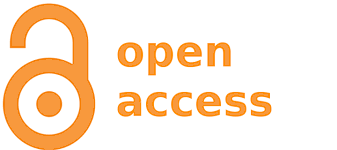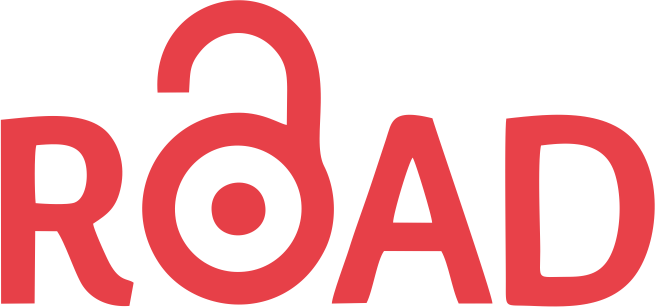A Game Theoretic Competitive Supply Chain Network Model with Green Investments and Labour
Abstract
In light of the recent severe Supply Chain (SC) disruptions that have occurred across multiple industries around the globe, three essential and linked themes have emerged in SC management: the well-being of employees, SC sustainability, and competition between SCs for limited resources. In this paper, we create a game-theoretic SC network model that incorporates together non-cooperative SC competition, employee productivity and engagement, and green investing. Each competing firm within the network seeks to maximise its profit by determining an optimal flow of products and allocation of green investments across the SC according to a predetermined budget. A carbon tax on emissions and consumer sustainability preferences are also included in the model. The model is solved using a Variational Inequality reformulation. The illustrative numerical examples presented in this paper have been inspired by the Maltese dairy industry and demonstrate the applicability of the model to real-world problems. The results highlight the significance of the employee engagement factor in enabling firms to adopt and realise more sustainable SC practices.
References
Agi, M. A. N., Faramarzi-Oghani, S., and Oncu Hazır. Game theory-based models in green supply chain management: a review of the literature. International journal of production research 59, 15 (08 2021), 4736–4755.
Agius, J. Assessing and upgrading infrastructure at Malta Dairy to achieve higher efficiency and lower carbon footprint. OAR@UM (2018). Master’s dissertation, University of Malta.
Anitha, J. Determinants of employee engagement and their impact on employee performance. International Journal of Productivity and Performance Management 63, 3 (2014), 308–323.
Delmas, M. A., and Pekovic, S. Environmental standards and labor productivity: Understanding the mechanisms that sustain sustainability. Journal of Organizational Behavior 34, 2 (2013), 230–252.
European Commission. Farm accountancy data network public database, 2018. https://agridata.ec.europa.eu/extensions/FADNPublicDatabase/FADNPublicDatabase.html, (Accessed 2022-04-15).
European Commission. A European Green Deal, 2019. https://ec.europa.eu/info/strategy/priorities-2019-2024/european-green-deal_en, (Accessed 2023-02-22).
European Commission. EU prices of cow’s raw milk, 2022. https://ec.europa.eu/info/sites/default/files/food-farming-fisheries/farming/documents/eu-raw-milk-prices_en.pdf, (Accessed 2022-04-07).
European Milk Board. What is the cost of producing milk?, 2019. https://www.europeanmilkboard.org/fileadmin/Dokumente/Milk_Production_Costs/Gesamtbroschuere_2021/2021_Cost_study_EN.pdf, (Accessed 2022-04-07).
Facchinei, F., and Pang, J.-S. Finite-dimensional variational inequalities and complementarity problems. Springer, 2003.
Gabay, D., and Moulin, H. On the uniqueness and stability of nash-equilibria in noncooperative games. In Applied Stochastic Control in Econometrics and Management Science, A. Bensoussan, P. Kleindorfer, and C. Tapiero, Eds. North Holland, 1980, p. 271–294.
Glavas, A. Employee engagement and sustainability: A model for implementing meaningfulness at and in work. Journal of Corporate Citizenship, 46 (2012), 13–29.
Jobsplus. Occupational handbook, 2018. https://jobsplus.gov.mt/job-seekers-mt-MT-en-GB/guidance-services/occupational-handbook-2018, (Accessed 2022-04-14).
Korpelevich, G. M. The extragradient method for finding saddle points and other problems. Matekon 13 (1977), 35–49.
Liu, Z., Anderson, T. D., and Cruz, J. M. Consumer environmental awareness and competition in two-stage supply chains. European journal of operational research 218, 3 (2012), 602–613.
Majig, M.-A., Hedar, A.-R., and Fukushima, M. Hybrid evolutionary algorithm for solving general variational inequality problems. Journal of Global Optimization 38 (2007), 637–651.
Nagurney, A. Network Economics: A Variational Inequality Approach, 2 ed., vol. 10 of Advances in Computational Economics. Springer, 1999.
Nagurney, A. A multiperiod supply chain network optimization model with investments in labor productivity enhancements in an era of covid-19 and climate change. Operations Research Forum 2 (2021).
Nagurney, A. Supply chain game theory network modeling under labor constraints: Applications to the covid-19 pandemic. European journal of operational research 293, 3 (09 2021), 880–891.
Nagurney, A. Optimization of investments in labor productivity in supply chain networks. International Transactions in Operational Research 29, 4 (2022), 2116–2144.
Nagurney, A., and Li, D. Competing on Supply Chain Quality: A Network Economics Perspective. Springer Series in Supply Chain Management. Springer International Publishing AG, Cham, 2016.
Nash, J. F. Equilibrium points in n-person games. Proceedings of the National Academy of Sciences 36, 1 (1950), 48–49.
Nejati, M., Rabiei, S., and Jabbour, C. J. C. Envisioning the invisible: Understanding the synergy between green human resource management and green supply chain management in manufacturing firms in iran in light of the moderating effect of employees’ resistance to change. Journal of cleaner production 168 (2017), 163–172.
Peakon. The employee expectations report 2020, 2020. https://heartbeat.peakon.com/reports/employee-expectations-2020/ (Accessed 2023-02-06).
Peakon. The employee expectations report 2022, 2022. https://heartbeat.peakon.com/reports/employee-expectations-2022/ (Accessed 2023-02-06).
Proietti, L., Pauselli, M., Paolotti, L., and Attard, G. Environmental impact evaluation of dairy farms through life cycle assessment: a case study in Malta. X Convegno dell’Associazione Rete Italiana LCA 2016 : Life Cycle Thinking, Sostenibilit`a ed Economia Circolar, Ravenna (2016), 246–255.
Rosen, J. B. Existence and uniqueness of equilibrium points for concave n-person games. Econometrica: Journal of the Econometric Society (1965), 520–534.
Saberi, S., Cruz, J. M., Sarkis, J., and Nagurney, A. A competitive multiperiod supply chain network model with freight carriers and green technology investment option. European journal of operational research 266, 3 (05 2018), 934–949.
Sun, L., and Bunchapattanasakda, C. Employee engagement: A literature review. International Journal of Human Resource Studies 9, 1 (2019), 63–80.
Wieland, A., Handfield, R. B., and Durach, C. F. Mapping the landscape of future research themes in supply chain management. Journal of business logistics 37, 3 (2016), 205–212.
Yu, M., Cruz, J. M., and Li, D. The sustainable supply chain network competition with environmental tax policies. International journal of production economics 217 (11 2019), 218–231.
Yu, M., Cruz, J. M., Li, D., and Masoumi, A. H. A multiperiod competitive supply chain framework with environmental policies and investments in sustainable operations. European Journal of Operational Research 300, 1 (2022), 112–123.
Copyright (c) 2023 MENDEL

This work is licensed under a Creative Commons Attribution-NonCommercial-ShareAlike 4.0 International License.
MENDEL open access articles are normally published under a Creative Commons Attribution-NonCommercial-ShareAlike (CC BY-NC-SA 4.0) https://creativecommons.org/licenses/by-nc-sa/4.0/ . Under the CC BY-NC-SA 4.0 license permitted 3rd party reuse is only applicable for non-commercial purposes. Articles posted under the CC BY-NC-SA 4.0 license allow users to share, copy, and redistribute the material in any medium of format, and adapt, remix, transform, and build upon the material for any purpose. Reusing under the CC BY-NC-SA 4.0 license requires that appropriate attribution to the source of the material must be included along with a link to the license, with any changes made to the original material indicated.






